Home>Home Maintenance>How To Become An Insurance Home Repairs Mediator


Home Maintenance
How To Become An Insurance Home Repairs Mediator
Modified: March 6, 2024
Learn how to become a mediator for home repairs insurance claims. Gain expertise in resolving disputes related to home maintenance.
(Many of the links in this article redirect to a specific reviewed product. Your purchase of these products through affiliate links helps to generate commission for Storables.com, at no extra cost. Learn more)
Introduction
Home repairs can be a source of stress and frustration for homeowners, especially when dealing with insurance claims. Delays, denials, and disputes can arise, leaving homeowners feeling helpless and unsure of how to proceed. This is where an insurance home repairs mediator comes in.
An insurance home repairs mediator is a professional who acts as a neutral third party to help facilitate communication and resolution between homeowners and insurance companies. They play a crucial role in ensuring a fair and timely resolution to insurance claims related to home repairs.
In this article, we will explore what it takes to become an insurance home repairs mediator, including the skills and qualifications required, as well as the steps to establish yourself in this rewarding career.
Key Takeaways:
- Becoming an insurance home repairs mediator requires a mix of technical knowledge, communication skills, and professional training. It’s a rewarding career that helps homeowners and insurance companies navigate complex home repair claims.
- To become an insurance home repairs mediator, aspiring professionals should focus on obtaining relevant experience, completing mediation training, obtaining certification, and building a strong network within the industry. These steps are essential for success in this field.
Read more: How To Become A Home Decor Blogger
What is an Insurance Home Repairs Mediator?
An insurance home repairs mediator is a professional who specializes in resolving disputes between homeowners and insurance companies regarding home repair claims. They act as a neutral party, facilitating communication and negotiations between the two parties to reach a fair and satisfactory resolution.
When homeowners experience damage to their property, they typically file an insurance claim to cover the cost of repairs. However, insurance companies may dispute the claim, leading to delays and disagreements. This is where the mediator steps in, using their expertise in insurance policies and home repairs to navigate the complexities of the situation.
The mediator’s primary role is to listen to both parties’ concerns, gather relevant information, and help them reach a mutually agreeable solution. They analyze the homeowner’s policy coverage, evaluate the extent of the damage, and assess the reasonableness of the insurance company’s decision. By serving as an unbiased mediator, they help foster open dialogue and work towards a resolution that benefits both the homeowner and the insurance company—an outcome that might not be achievable without their intervention.
Insurance home repairs mediators also play a vital role in minimizing conflicts and preventing long-drawn-out legal battles. Their expertise in insurance policies, construction practices, and cost estimation helps homeowners and insurance companies reach a resolution quickly and efficiently. This not only saves time and money but also reduces the stress and anxiety experienced by homeowners during the repair process.
Mediators work on a case-by-case basis and handle a variety of issues related to insurance home repairs. These may include disputes over denied claims, delays in processing, disagreements on the scope of repairs, or disagreements on the appropriate amount of compensation. The mediator carefully examines the facts of each case, reviews documentation and evidence, and facilitates discussions between the parties involved.
Overall, an insurance home repairs mediator serves as a crucial link between homeowners and insurance companies, ensuring that the claims process is fair, transparent, and efficient. Their expertise and impartiality help bridge the gap between conflicting parties and facilitate a resolution that benefits all parties involved.
Skills and Qualifications Required
To become an insurance home repairs mediator, several skills and qualifications are essential. These include a combination of technical knowledge, communication skills, and professional training. Here are some key skills and qualifications required:
- Knowledge of Insurance Policies: A deep understanding of insurance policies, including coverage, exclusions, and claim processes, is crucial. Mediators should be well-versed in interpreting insurance contracts to effectively assess claims.
- Home Repair Knowledge: Familiarity with home construction, repairs, and building materials is important in order to evaluate the validity of claims and understand repair estimates.
- Strong Negotiation Skills: Mediators should possess excellent negotiation skills to facilitate discussions, find common ground, and help parties reach a fair resolution. They should be able to advocate for their clients while remaining neutral.
- Excellent Communication Skills: Effective communication is paramount in this role. Mediators must be able to clearly explain complex concepts to homeowners and insurance company representatives, ensuring that everyone involved understands the issues and potential solutions.
- Impartiality and Neutrality: Mediators should maintain impartiality throughout the process, not taking sides or favoring one party over the other. They should create an environment of trust and fairness for all parties involved.
- Problem-Solving Abilities: The ability to analyze information, identify underlying issues, and propose creative solutions is crucial in resolving disputes effectively.
- Professional Training: Formal training in mediation and conflict resolution is highly recommended. This training equips individuals with the necessary techniques and strategies to navigate complex negotiations and handle conflicts.
- Legal Knowledge: While not essential, having a basic understanding of relevant laws and legal procedures can be advantageous when dealing with insurance claims and potential legal issues.
While formal education in a related field, such as insurance or construction, can be beneficial, it is not always a prerequisite. However, having a bachelor’s degree in a relevant field may enhance your credibility and marketability as a mediator.
In addition to the technical skills and qualifications, a mediator should have a genuine desire to help others and a commitment to resolving conflicts fairly. Patience, empathy, and the ability to remain calm under pressure are also valuable traits in this profession.
By acquiring and refining these skills, as well as obtaining the necessary qualifications, aspiring insurance home repairs mediators can position themselves for success in this fulfilling and important role.
Steps to Becoming an Insurance Home Repairs Mediator
If you’re interested in becoming an insurance home repairs mediator, there are several steps you can take to kickstart your career in this field. Here’s a breakdown of the key steps:
- Obtain a Bachelor’s Degree: While it’s not always required, having a bachelor’s degree in a relevant field can enhance your credibility and knowledge. Consider pursuing a degree in insurance, construction management, law, or a related discipline.
- Gain Relevant Experience: Seek opportunities to gain experience in the insurance and home repairs industry. This can include working for an insurance company, a construction firm, or a related field where you can develop an understanding of insurance policies, construction practices, and claims processes.
- Complete Mediation Training: Enroll in a recognized mediation training program. These programs are designed to provide you with the necessary skills and knowledge to effectively mediate disputes. Look for courses that focus specifically on insurance and home repairs mediation.
- Obtain Certification: Consider obtaining certification as a mediator. Certain organizations, such as the National Association of Certified Mediators (NACM), offer certification programs that can enhance your professional credentials and demonstrate your competency as a mediator.
- Build a Network: Establish connections and network with professionals in the insurance industry, construction industry, and other related fields. Attend industry events, join relevant associations or organizations, and engage in online communities to expand your network and stay updated with industry trends and developments.
- Market Yourself: Once you’ve acquired the necessary skills, qualifications, and experience, it’s time to market yourself as a mediator. Create a professional resume highlighting your relevant experience and training. Develop a compelling online presence through a website or social media profiles that showcase your expertise.
- Seek Opportunities: Start seeking opportunities to work as an insurance home repairs mediator. Reach out to insurance companies, home repair contractors, and individuals in need of mediation services. Consider joining a mediation firm or partnering with professionals in related fields to expand your client base.
- Continuing Education: Keep learning and staying updated with industry advancements and best practices. Attend workshops, conferences, and training programs to enhance your skills and knowledge as a mediator.
Remember, building a successful career as an insurance home repairs mediator takes time, dedication, and ongoing professional development. Be patient and persistent, and continue to refine your skills and expand your network to maximize your opportunities in this rewarding field.
Obtain a Bachelor’s Degree
While not always a strict requirement, obtaining a bachelor’s degree in a relevant field can provide a solid foundation for a career as an insurance home repairs mediator. A bachelor’s degree equips individuals with the knowledge and skills necessary to excel in this profession. Here are some steps to help you pursue a degree in a related field:
- Research Degree Programs: Start by researching universities and colleges that offer programs in insurance, construction management, law, or other relevant disciplines. Consider factors such as accreditation, curriculum, faculty, and internship opportunities.
- Select the Right Program: Choose a program that aligns with your interests and career goals. Look for courses that cover subjects such as insurance policies, claims processes, construction practices, and negotiation skills. Consider whether you prefer a general program or one that specializes in insurance or construction-related disciplines.
- Apply and Enroll: Once you’ve narrowed down your options, complete the application process for your chosen degree program. Meet all the requirements, including submitting required documents, transcripts, and any other prerequisites for admission.
- Focus on Relevant Courses: During your studies, prioritize courses that are directly related to insurance and home repairs mediation. This can include subjects like insurance law, contract law, conflict resolution, negotiation strategies, and construction management.
- Internship Opportunities: Take advantage of internship opportunities available through your program or seek out relevant internships in insurance companies, construction firms, or mediation organizations. These internships can provide hands-on experience and help you apply theoretical knowledge in real-world scenarios.
- Consider Advanced Degrees: While a bachelor’s degree is often sufficient, consider pursuing an advanced degree, such as a master’s or law degree, to further enhance your expertise and marketability in the field. Advanced degrees can open up additional career opportunities and increase your earning potential.
- Continued Learning: Even after completing your bachelor’s degree, continued learning is essential. Stay updated on industry trends, emerging technologies, and changes in insurance policies and regulations by attending seminars, workshops, and professional development courses.
An undergraduate degree in a related field provides the foundational knowledge needed to understand insurance policies, construction practices, and the principles of mediation. It also demonstrates your commitment and dedication to your chosen career path, which can be advantageous when seeking job opportunities in the insurance home repairs mediation field.
Remember, while obtaining a bachelor’s degree is valuable, it’s important to supplement your academic education with practical experience and relevant certifications to enhance your skills as an insurance home repairs mediator.
Tip: To become an insurance home repairs mediator, gain experience in insurance, construction, and mediation. Consider obtaining relevant certifications or a degree in a related field.
Read more: How To Become An Alarm Systems Dealer
Gain Relevant Experience
In addition to obtaining a bachelor’s degree, gaining relevant experience is essential for a successful career as an insurance home repairs mediator. Real-world experience allows you to apply your knowledge, develop practical skills, and build a strong professional network. Here are some steps to help you gain relevant experience in the field:
- Research Internship Opportunities: Look for internships in insurance companies, mediation firms, or construction organizations. These internships can provide hands-on experience and expose you to the practical aspects of insurance home repairs mediation.
- Apply for Entry-Level Positions: Consider applying for entry-level positions in insurance companies, construction firms, or mediation organizations. These positions may include roles such as claims assistant, insurance adjuster, or construction project coordinator. This will allow you to gain industry-specific knowledge and understand the inner workings of the insurance and home repair industries.
- Volunteer or Freelance: Offer your services as a mediator on a volunteer basis or as a freelancer. Reach out to organizations that provide mediation services or community centers that deal with homeowner disputes. This will provide you with practical experience and allow you to build your portfolio as a mediator.
- Develop Communication and Negotiation Skills: Regardless of your job title or role, focus on developing strong communication and negotiation skills. These skills are essential for effective mediation. Look for opportunities to practice active listening, conflict resolution, and persuasive communication.
- Network with Professionals: Attend industry events, join professional associations, and participate in networking activities. Building connections with professionals in the insurance and home repair industries can provide valuable insights and potential job opportunities.
- Seek Mentorship: Find a mentor who is an experienced insurance home repairs mediator. A mentor can provide guidance, share their expertise, and offer advice on advancing your career.
- Continued Learning: Stay informed about industry advancements and changes in policies and practices. Take advantage of seminars, workshops, and online courses to continue expanding your knowledge and skills.
Gaining relevant experience demonstrates to potential employers or clients that you have practical knowledge and an understanding of the challenges involved in insurance home repairs mediation. It helps you build a strong foundation and prepares you for the complexities of the job.
Remember, accumulating experience takes time. Be proactive, persistent, and open to different opportunities. This will ultimately contribute to your growth and success as an insurance home repairs mediator.
Complete Mediation Training
Completing mediation training is a crucial step towards becoming a successful insurance home repairs mediator. This training equips you with the necessary skills and techniques to effectively mediate disputes and facilitate communication between homeowners and insurance companies. Here’s a breakdown of what you need to know:
- Research Training Programs: Look for reputable training programs that specialize in mediation. Consider programs that specifically focus on insurance-related disputes or construction and home repairs mediation.
- Choose the Right Program: Select a program that aligns with your career goals and interests. Check the curriculum to ensure it covers essential topics such as conflict resolution, negotiation strategies, ethics, and the specific challenges involved in insurance home repairs mediation.
- Consider Online or In-Person Training: Determine whether you prefer online training or in-person workshops. Both options have their advantages, so choose the format that suits your learning style and availability.
- Complete the Training: Enroll in the mediation training program and actively participate in all sessions or modules. Take the opportunity to learn from experienced mediators, engage in role-playing exercises, and practice essential mediation techniques.
- Build Practical Skills: During your training, focus on developing practical mediation skills, such as active listening, effective communication, problem-solving, and neutrality. These skills are essential for creating a productive and unbiased mediation process.
- Gain Experience: Look for opportunities to apply your training by participating in mock mediations or shadowing experienced mediators. This hands-on experience will help you refine your skills and gain confidence in real-world mediation scenarios.
- Stay Updated: Mediation practices and techniques evolve over time. Stay informed about new developments and best practices in the field of mediation by attending continuing education workshops or seminars.
- Obtain Certification: Consider obtaining certification as a mediator. Although not always required, certification can enhance your professional credentials and demonstrate your commitment to excellence in the field. Certain organizations, such as the National Association of Certified Mediators (NACM), offer certifications specific to mediation in various industries.
Completing mediation training will provide you with the necessary tools and knowledge to effectively mediate insurance home repairs disputes. It will enhance your understanding of the mediation process, allow you to effectively manage conflicts, and facilitate productive conversations between homeowners and insurance companies.
Remember, mediation is a skill that requires practice and continuous improvement. Embrace every opportunity to hone your mediation skills and stay updated with current trends and techniques. This ongoing commitment to learning will help you stand out as a competent and successful insurance home repairs mediator.
Obtain Certification
Obtaining certification as an insurance home repairs mediator can provide a significant boost to your credibility and marketability in the field. Certification demonstrates your expertise, professionalism, and commitment to upholding high standards in mediation. Here’s what you need to know about obtaining certification:
- Research Certification Programs: Explore reputable organizations that offer certification programs for mediators. Look for programs that specialize in insurance mediation or have a focus on home repairs and construction-related disputes.
- Check Eligibility Requirements: Review the eligibility criteria for certification programs to ensure you meet the necessary qualifications. These requirements may include a specific number of hours of mediation experience, completion of certain training courses, or a combination of both.
- Submit Application: Complete the application process for the certification program of your choice. Provide all the required documentation, such as transcripts, proof of training, and evidence of mediation experience.
- Prepare for Examinations: Some certification programs may require you to pass an examination to demonstrate your knowledge and competency in mediation. Prepare for the examination by reviewing relevant materials, practicing sample questions, and seeking guidance from experienced mediators.
- Continuing Education: Many certification programs have continuing education requirements to ensure that certified mediators stay updated with the latest industry practices and standards. Stay informed about any required ongoing education and fulfill these requirements to maintain your certification.
- Network with Certified Mediators: Connect with other certified mediators in the field. Attend conferences, workshops, and events where you can meet and learn from professionals who have already obtained certification. Engaging with this community can provide valuable insights and networking opportunities.
- Showcase Your Certification: Once you have successfully obtained certification, showcase it prominently on your resume, website, and professional profiles. This will not only distinguish you from non-certified mediators but also instill confidence in potential clients or employers.
- Pursue Additional Certifications: Consider pursuing additional certifications or specializations to further enhance your expertise and expand your professional opportunities. This can include certifications in conflict management, insurance industry standards, or advanced mediation techniques.
Obtaining certification as an insurance home repairs mediator demonstrates your professionalism and dedication to your craft. It validates your skills and knowledge and sets you apart from others in the field.
Remember, certification is not necessarily a requirement to practice as a mediator, but it can greatly enhance your career prospects and credibility. Stay engaged with the certification organization to stay updated on industry trends and maintain your certification status through ongoing education and professional development.
Build a Network
Building a strong network is vital for success as an insurance home repairs mediator. Networking allows you to establish connections, gain insights from industry professionals, and access new opportunities. Here are some steps to help you build a valuable network in the field:
- Join Professional Associations: Investigate and join professional associations related to mediation, insurance, construction, and home repairs. These associations often provide networking events, educational resources, and opportunities to connect with other professionals in the industry.
- Attend Industry Events and Conferences: Make it a priority to attend industry events, conferences, and seminars. These events bring together professionals from various sectors, providing invaluable opportunities to expand your network and stay updated on industry trends.
- Engage in Online Communities: Participate in online forums, social media groups, and discussion boards relevant to insurance, construction, and mediation. Share your insights, ask questions, and connect with like-minded professionals in the field.
- Seek Mentorship: Identify experienced mediators or professionals in the insurance and home repairs industries who can provide guidance and mentorship. Their knowledge, experience, and connections can prove invaluable as you navigate your career as an insurance home repairs mediator.
- Attend Mediation Workshops and Training: Look for workshops and training sessions specifically aimed at mediators. These events not only enhance your skills but also create opportunities to connect with other mediators in a collaborative learning environment.
- Collaborate with Other Professionals: Build relationships and collaborate with professionals in related fields such as insurance agents, construction contractors, and real estate agents. Their referrals can lead to potential clients and mutually beneficial partnerships.
- Volunteer in Community Initiatives: Offer your mediation services pro bono to community centers, nonprofit organizations, or local homeowners’ associations. Not only is this a noble endeavor, but it also helps you build a positive reputation and expand your network through word-of-mouth referrals.
- Stay in Touch: Maintain regular communication with your network. Follow up after meetings or events, send occasional updates, and show genuine interest in the professional lives of your contacts. This helps nurture relationships and keeps you top of mind when opportunities arise.
Building a network takes time and effort. Be proactive, approachable, and willing to help others when you can. Remember, networking is a two-way street, so offer support and assistance to your contacts whenever possible.
A strong network not only provides opportunities for career growth and professional development but can also serve as a source of support and collaboration. By cultivating relationships within the industry, you can establish yourself as a trusted insurance home repairs mediator and expand your reach in the field.
Read more: What Is Home Life Insurance
Conclusion
Becoming an insurance home repairs mediator is a rewarding and challenging career path. By following the steps outlined in this article, you can embark on a journey to help homeowners and insurance companies navigate the complexities of home repair claims. Let’s recap the key points:
Starting with obtaining a bachelor’s degree in a relevant field, such as insurance or construction, provides a strong foundation for your career. However, practical experience is equally important. Seek internships, entry-level positions, and volunteer opportunities to gain hands-on knowledge of the insurance and home repair industries.
Completing mediation training specific to insurance and home repairs equips you with the necessary skills and techniques to effectively mediate disputes. Consider obtaining certification to further enhance your professional credentials and demonstrate your commitment to excellence.
Building a network of industry professionals through professional associations, attending events, and engaging in online communities creates opportunities for collaboration, mentorship, and referral business.
Remember, as an insurance home repairs mediator, your role is to facilitate communication, resolve conflicts, and help parties reach a fair resolution. Strong communication and negotiation skills, along with knowledge of insurance policies and home repairs, are vital for success in this field.
By combining technical expertise, effective communication, and a genuine desire to help others, you can establish yourself as a trusted insurance home repairs mediator. Keep learning, stay adaptable, and continuously build your skills to thrive in this evolving industry.
With dedication and a commitment to excellence, you can make a significant impact on the lives of homeowners and insurance companies, ensuring fair and efficient resolutions to home repair claims.
Frequently Asked Questions about How To Become An Insurance Home Repairs Mediator
Was this page helpful?
At Storables.com, we guarantee accurate and reliable information. Our content, validated by Expert Board Contributors, is crafted following stringent Editorial Policies. We're committed to providing you with well-researched, expert-backed insights for all your informational needs.
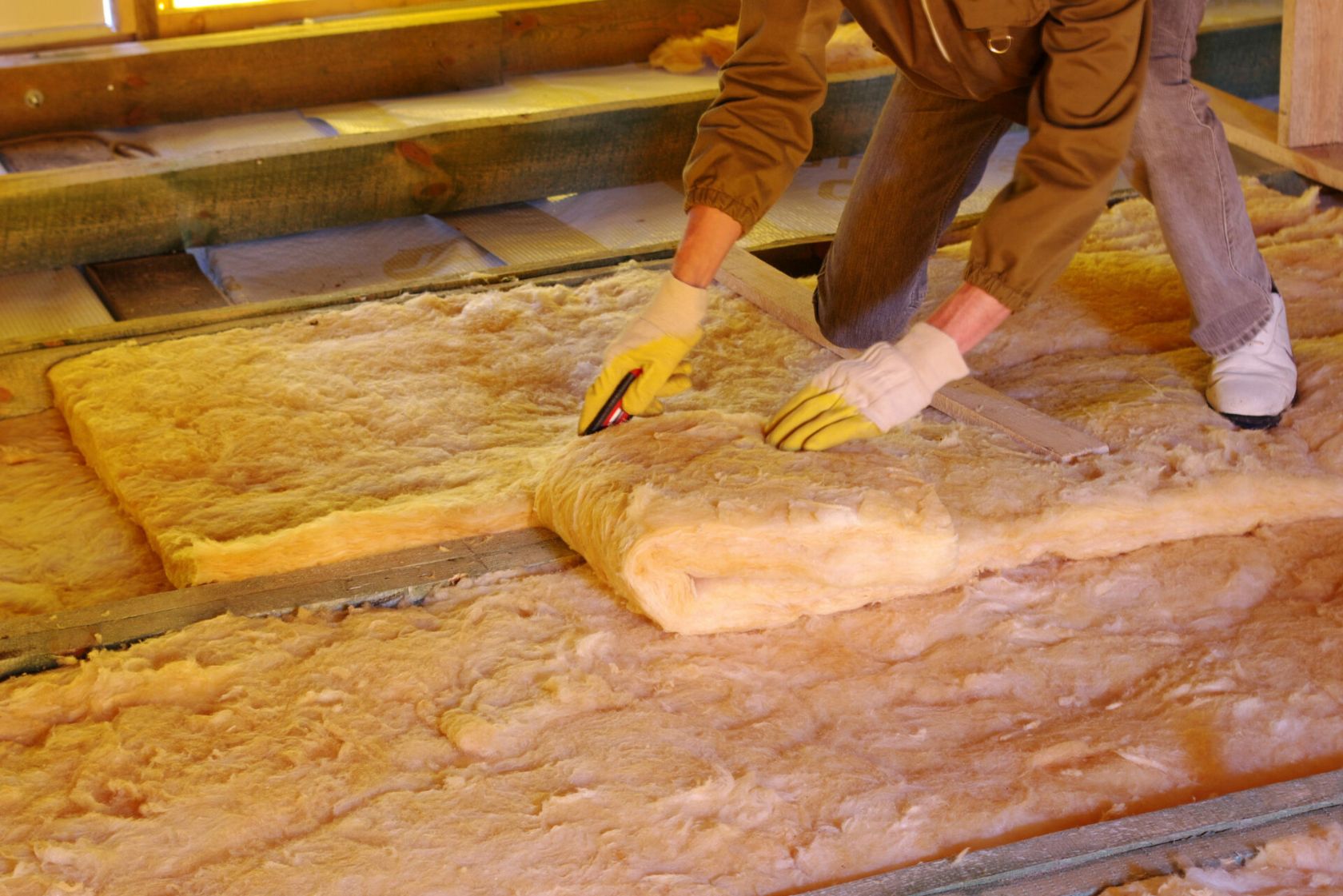

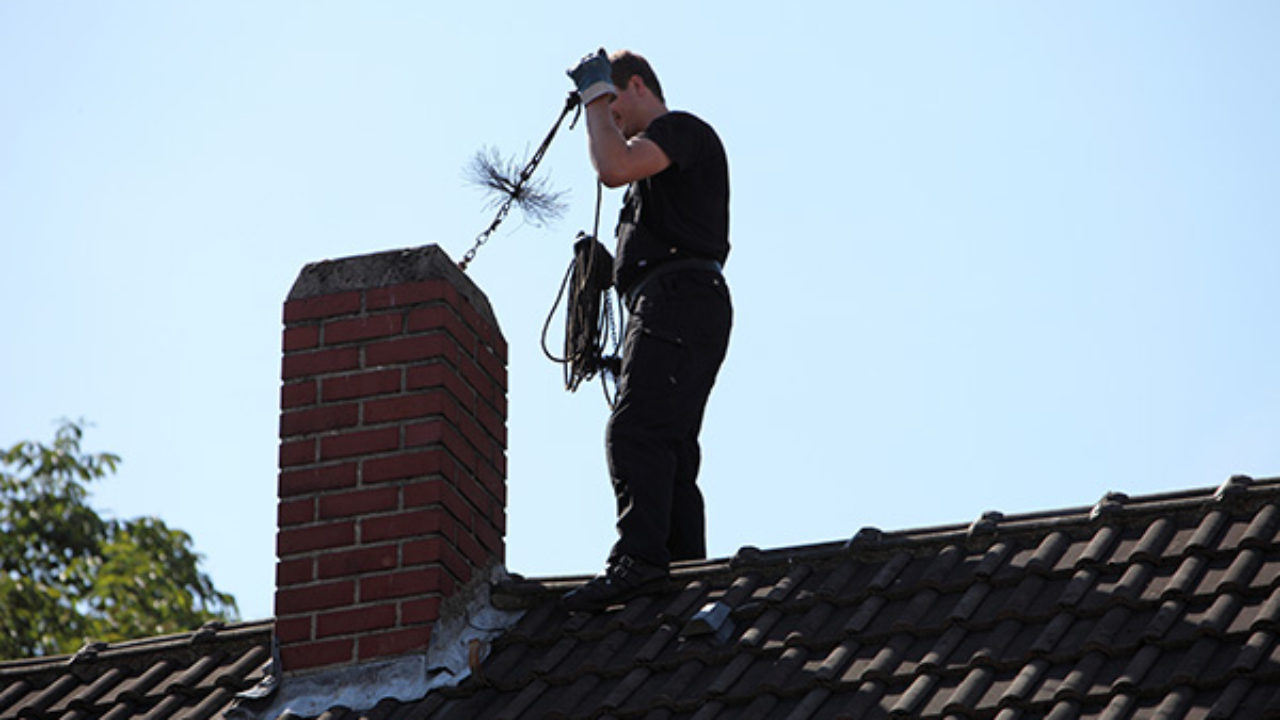



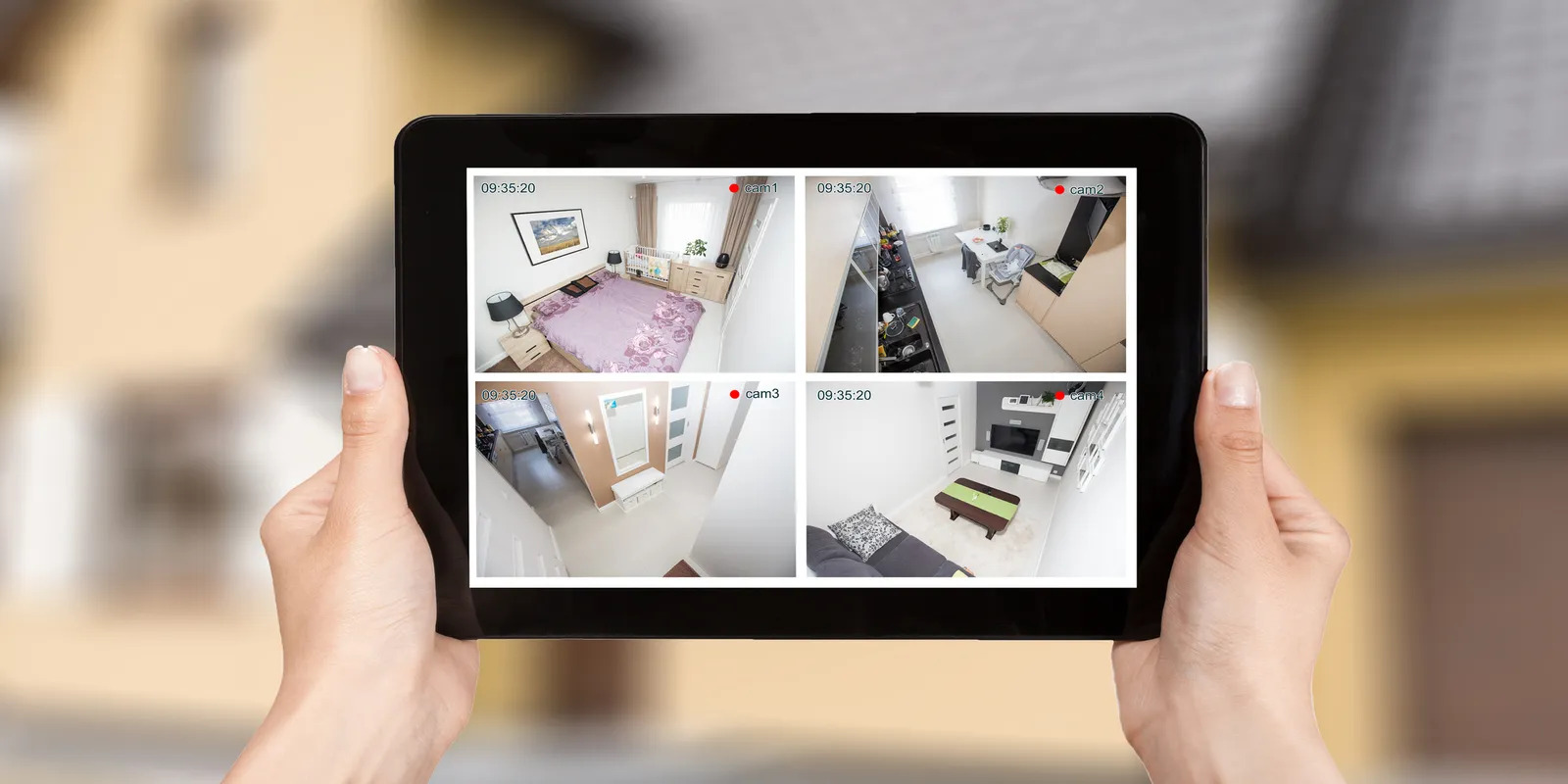
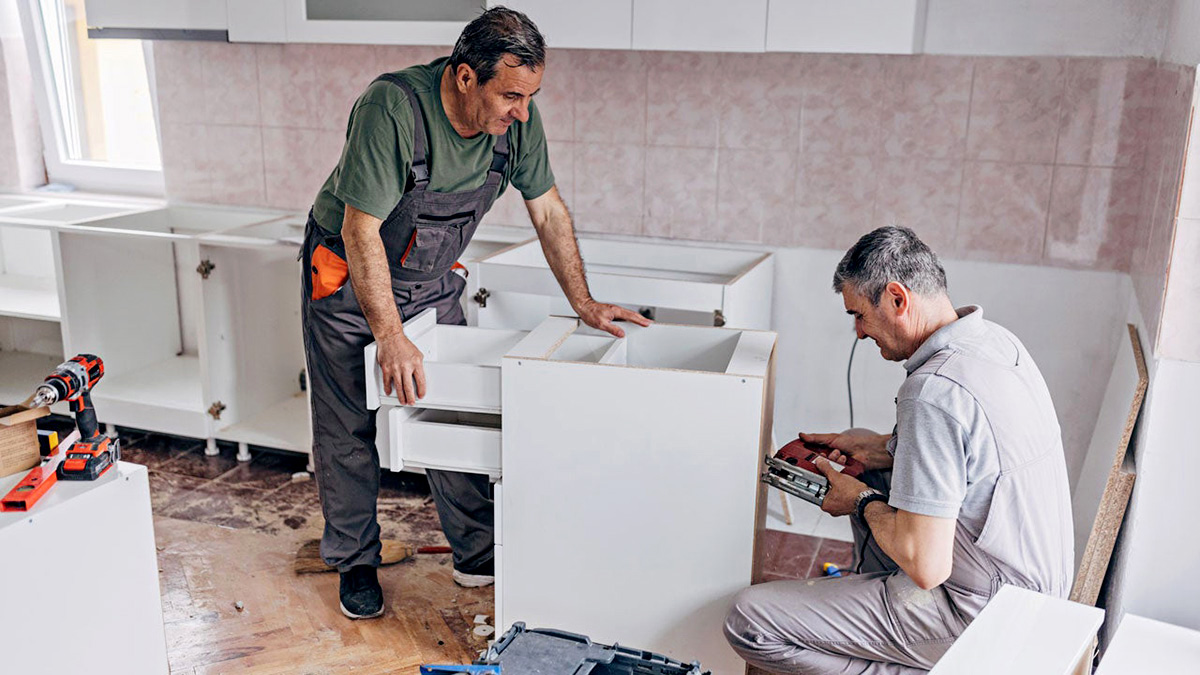

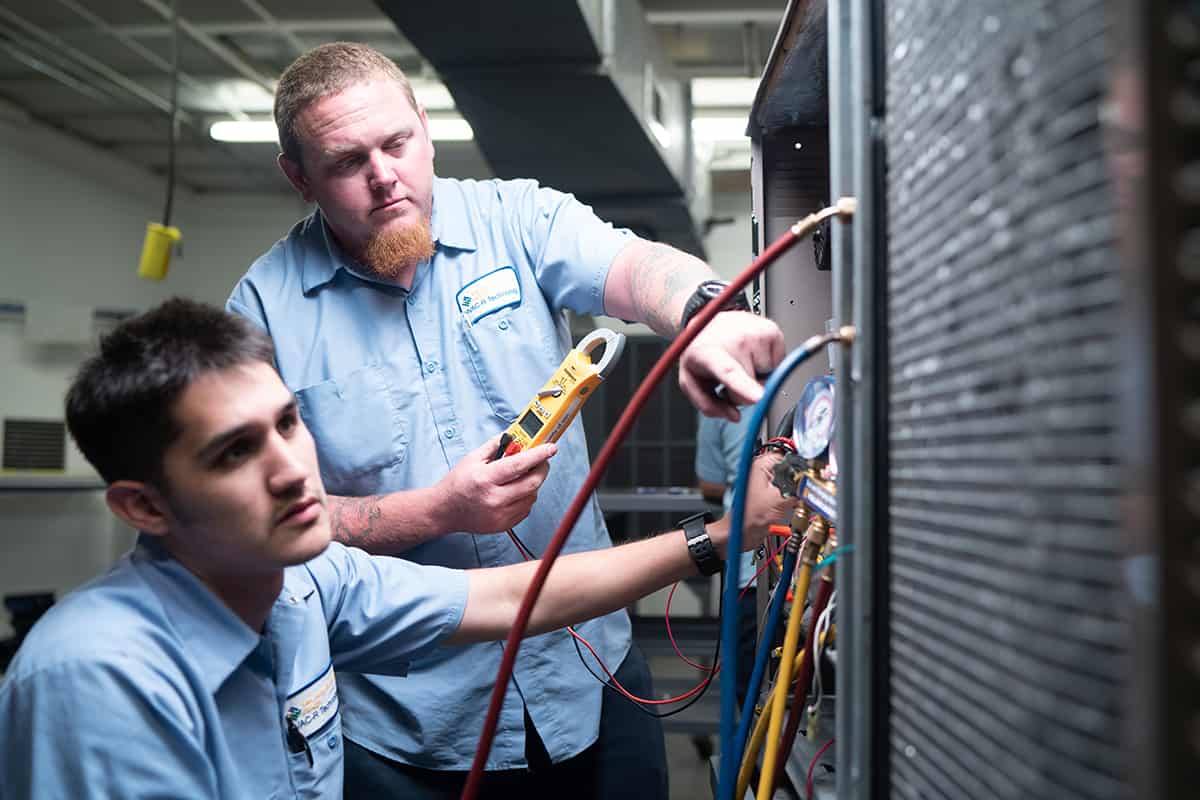

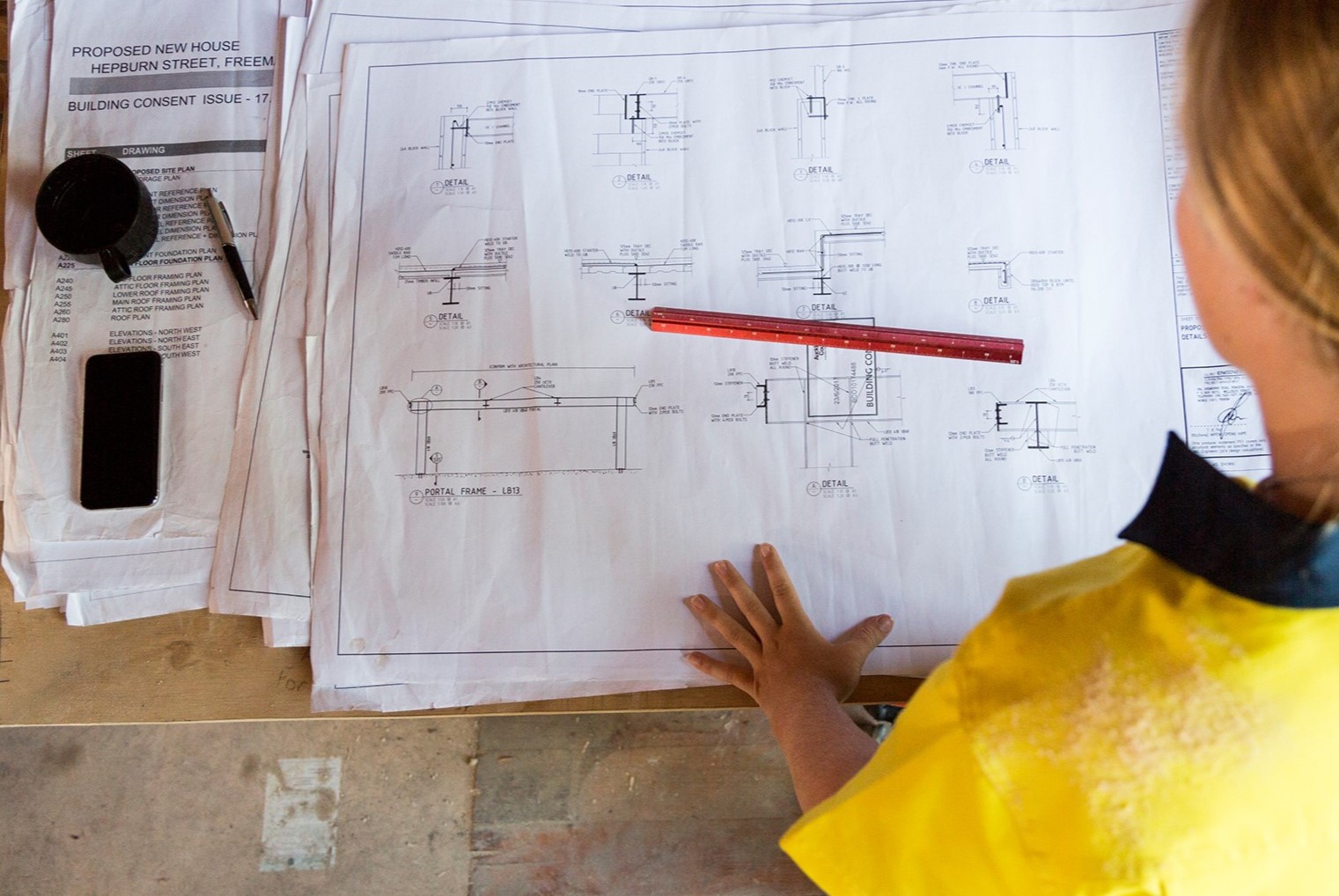
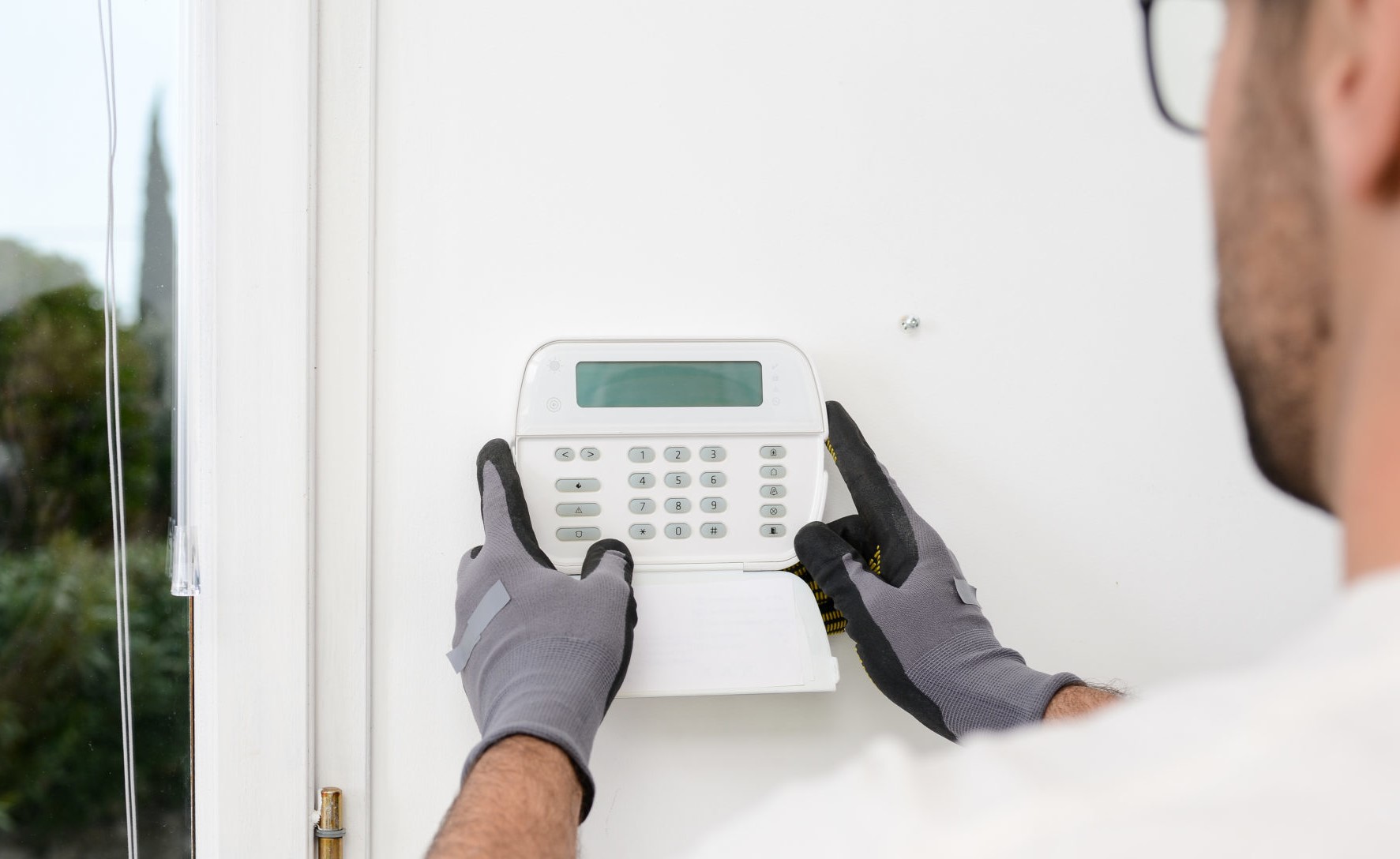

0 thoughts on “How To Become An Insurance Home Repairs Mediator”